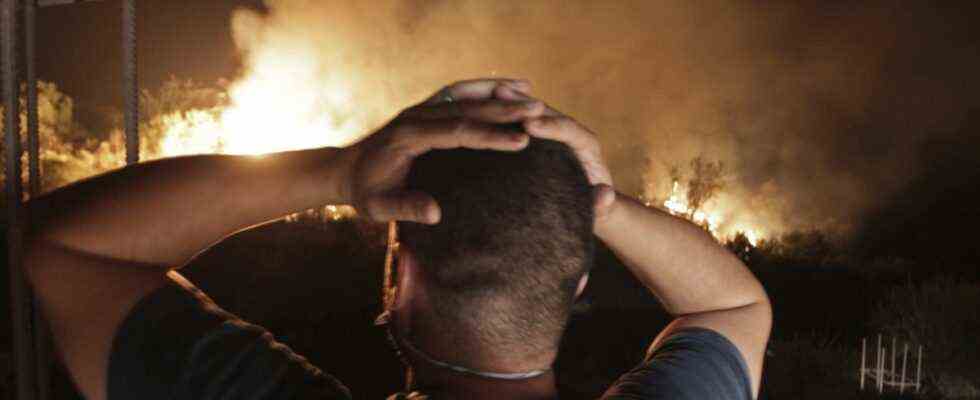The presenter Katrin Bauerfeind is only funny at first glance recently wrote on Twitter. Regarding the discussion about an own environmental program before the “Tagesschau”, she wrote: “If things continue like this, then there is no need for a ‘climate before eight’ anymore, then that’s just the news!”
This description is only half funny because the news of the past few weeks has been dominated by climate reports that are likely to scare you. The Intergovernmental Panel on Climate Change has just forecast that “on average over the next two decades, warming will reach or exceed 1.5 degrees, regardless of how emissions develop”. This is what it says in the IPCC’s new status report. The floods not only in western Germany, the heat waves and forest fires in Greece, Italy, Turkey, Russia and the USA are not only changing the earth, but are also having an impact on human health. The environmental doctor Claudia Traidl-Hoffmann says this week in an interview with SZ-Magazin (SZ Plus): “The polar ice melts, the jet stream paralyzes and no longer has the strength to push the weather away. And then it rains for two days, not just for two hours. That was not a combination of one-off factors – it will come much more frequently . And that’s why I’m really angry with politicians with government responsibility who still don’t act. “
The last sentence in particular shows that the climate crisis also has emotional and psychological consequences. Anger, fear and even sadness trigger the reports. In the United States, one speaks of one ecological grief, an ecological grief that can afflict people through images of burning forests, landslides or floods.
Concern for the earth could trigger grief, said the psychiatrist Andreas Meyer-Lindenberg in the Interview with Deutschlandfunk Kultur. The reactions do not even have to be officially rated as mental illness, “grief reactions and bad moods” also have significant consequences. So how should one deal with the multitude of negative reports?
When I read through the reactions of SZ readers to the report of the Intergovernmental Panel on Climate Change this week, I sensed a certain fatalism about the inaction of politics. This cynicism seems to be the other side of the emotional response spectrum.
One aspect from the IPCC report is often overlooked: “While many of these changes are now unavoidable, the researchers also emphasize that mankind still has the opportunity to act,” write Marlene Weiß, Benjamin von Brackel and Christoph von Eichhorn in their summary.
There is an opportunity to act: This sentence is probably the best therapy for both grief and cynicism. From a psychological point of view, hope does not develop in the certainty of a happy ending, but when one’s own actions have an influence. A famous sentence about this comes from Václav Havel, which Katrin Blawat quotes in her Instructions for Use for Hope (SZ Plus): “Hope is not the conviction that something will turn out well, but the certainty that something will make sense, no matter how it turns out. “
This is how you can read the bad news of the past few weeks: it confirms that it makes sense to do something about global warming.
(This text is from the weekly Newsletter Environmental Friday you here free of charge can order.)

